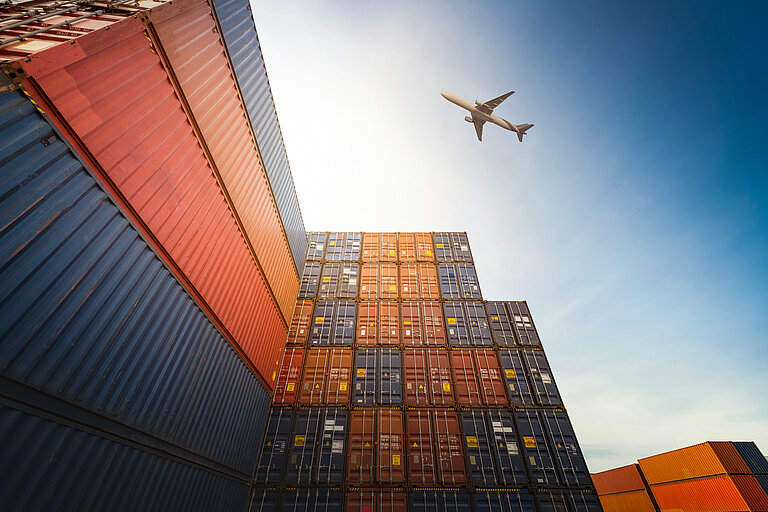Publications
11.05.2023
Compliance in supply chains - overview and solution approaches
With the German Supply Chain Due Diligence Act and the EU Corporate Sustainability Due Diligence Directive companies shall be obliged to better meet their global responsibility for respecting human rights and complying with environmental standards in their supply chains. Below, Compliance Requirements and Solution Approaches are described against the background of the German Supply Chain Due Diligence Act and the EU Corporate Sustainability Due Diligence Directive.
According to the German government , the EU Parliament and the EU Commission as well as human rights organisations, fundamental human rights can be violated and the environment damaged in connection with trade and production. With the German "Gesetzesentwurf über die unternehmerischen Sorgfaltspflichten in Lieferketten (LkSG)" (draft law on corporate due diligence in supply chains), the German government, and with the EU Corporate Sustainability Due Diligence Directive (CSDD) , the European legislator wants to oblige companies to better meet their global responsibility for respecting human rights and complying with (mainly European) environmental standards in their supply chains. The obligations are to be implemented by the companies in their own business areas as well as vis-à-vis their suppliers.
Scope of due diligence
The following are named as mandatory due diligence obligations: Violations of human rights, child labour, forced labour, slavery, servitude, exploitation, discrimination, unequal treatment, debt bondage, adequate remuneration, freedom of association, occupational health and safety, safety standards, building code or fire safety regulations, unlawful eviction, environmental protection requirements, harmful soil change, water pollution, air pollution, anti-corruption and anti-bribery laws.
Implementation requirements for companies
In order to fulfil and demonstrate compliance with due diligence requirements in supply chains with an in-house solution, the company must set up, among other things:
- An organisation within the company to review and monitor supply chains
- Designation of responsible persons and contact persons
- Hire or train supply chain experts to execute the supply chain control and risk management system in a legally compliant manner.
- SW tool to assist with supply chain review and monitoring
- Continuous implementation of supplier monitoring; according to BMAS and BMZ with the help of various sources such as: Reports on the complaints mechanism, BAFAs handouts, media reports, reports from non-governmental organisations (NGOs) and reports on the Internet (web research as so-called web crawling).
- Establishment and introduction of a company-specific risk management system
- Establish a response and sanctions management: who initiates which "consequences" (address, warning, suspension, exclusion, etc.) for which member of the supply chain?
- Involving customers and supply chain members in the risk management system
- Establishment of a complaint and whistle-blower protection system
- Verification, documentation and reporting.
- Annual report and risk assessment report
- Third-party certification of the company (proof of practiced diligence towards authorities, customers, media and society) or auditing by customers.

Thus, only two approaches result from the above consideration:
1. An in-house solution at a very high level for handling the due diligence requirements of the LkSG
The in-house solution is described in detail above with its requirements, advantages and disadvantages.
2. Contracting out this task to an external service provider.
n order to support the SMEs of the electro and digital industry, an external solution was established with regard to the requirements of the sector, but also for other manufacturing or trading companies and industries .
This evaluated full-service solution maps the requirements of the LkSG and the expected tightening by the CSDDD and assumes all necessary due diligence obligations/tasks for the suppliers connected to the LkSG solution:
- Legally compliant supply chain audits using AI and assessments of audit results by supply chain experts.
- Fulfilment of corporate due diligence obligations without own additional personnel expenses and without own software.
- Minimising costs while professionalising due diligence.
- Checking suppliers against an LCC blacklist that currently lists more than 140,000 critical companies.
- Exculpation effect for management and company due to audit and monitoring of supply chains by experts.
- Support from supply chain experts to resolve supply chain issues, such as identified due diligence violations in the supply chain.
- Issuance of a certificate on the audit and permanent monitoring of the supply chains for submission to customers and authorities.
The customers of the suppliers connected to the LkSG solution, i.e., the companies directly subject to the LkSG, also benefit from this expert solution, as
- they know through the certificate that their supplier participates in the LkSG solution and is thus a reliable partner in complying with due diligence obligations.
- with the certificate, they receive proof that their supplier's supply chains have been audited and monitored by experts.
- they receive a certificate of compliance with LkSG requirements that they can rely on with legal certainty and are exempt from further reviews, audits, and obtaining additional evidence.
